Who was Raisi and what does his death mean?
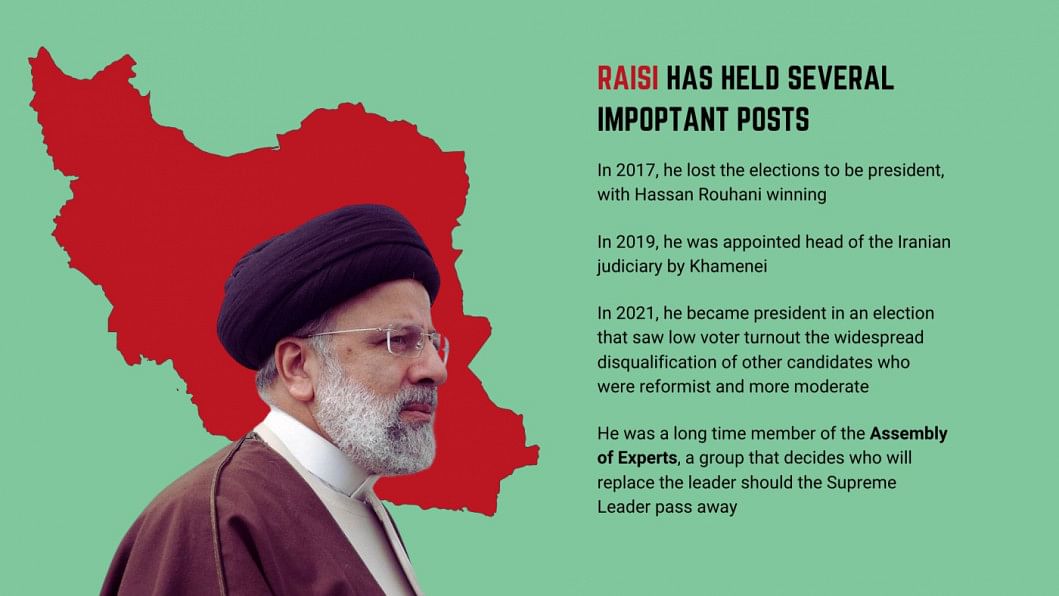
The death of Iran's President Ebrahim Raisi adds to the growing tensions the country is undergoing at present. From sanctions in 2018 causing further deterioration in the Iranian economy, to Iran's recent historic drone strikes against Israel, Raisi's death comes amid a situation where Iran is already tackling multiple difficult situations, on both the international and domestic fronts.
Raisi, who died in the crash of a helicopter he was riding on his return from a visit to Azerbaijan, held several important positions in Iran. From a town prosecutor, he saw himself promoted to the position of a provincial prosecutor, eventually becoming the chief prosecutor of Tehran. In the 1980s, Raisi was appointed by Ayatollah Ruhollah Khomeini, founder of the Islamic Republic of Iran, to the committee that was responsible for the executions of thousands of political dissidents.
Raisi was an ultraconservative hardliner, who served as judiciary chief in 2019, then became president in 2021 in an election that had low voter turnout and the widespread disqualification of other candidates who were deemed more moderate and reformist. His policies have been condemned both internationally and domestically.
Within Iran, Raisi has long been associated with repressive tactics. A conservative cleric, Raisi ensured stricter enforcement of the "hijab and chastity law" in 2022, a year after his election to the position of president. Soon, in a matter of weeks, the decision led to the death of 22-year-old Mahsa Amini, sparking the "Jin Jiyan Azadi" movement in Iran. What occurred after is the severe repression of the ensuing protests, with 582 people executed in 2022, and 834 people executed in 2023. As is now well-known, violent crackdowns of the protests followed.
This kind of behaviour from Raisi was not new. A leaked 2016 audio tape positions Raisi as being involved in the executions of thousands of Iranian dissenters, despite his later denial of his role. In 1988, 5,000 people were executed, according to various human rights groups such as Amnesty International. The victims are said to be in unmarked mass graves and the event has been deemed an ongoing crime against humanity.
On the international stage, Iran's interests align with powerful nations such as Russia, China, Türkiye and the UAE, with political authorities in these states expressing condolences in the aftermath of Raisi's death. A staunch critic of the West, Raisi used incendiary rhetoric against Israel in light of the latter's attack on Gaza following Hamas's October 7 attack. Speaking of enacting revenge against Israel for its actions in Gaza, Raisi was supportive of Iran's drone attacks on Israel.
With Israel attacking Gaza for over half a year, speculations have risen among some in the general public of a possible involvement by Israel in Raisi's death. Considering Raisi's anti-West sentiments and Iran's general stance against Israel, it is not surprising that these speculations have come about. The death of Iranian General Qasem Suleimani in 2020 also makes such a possibility appear more credible.
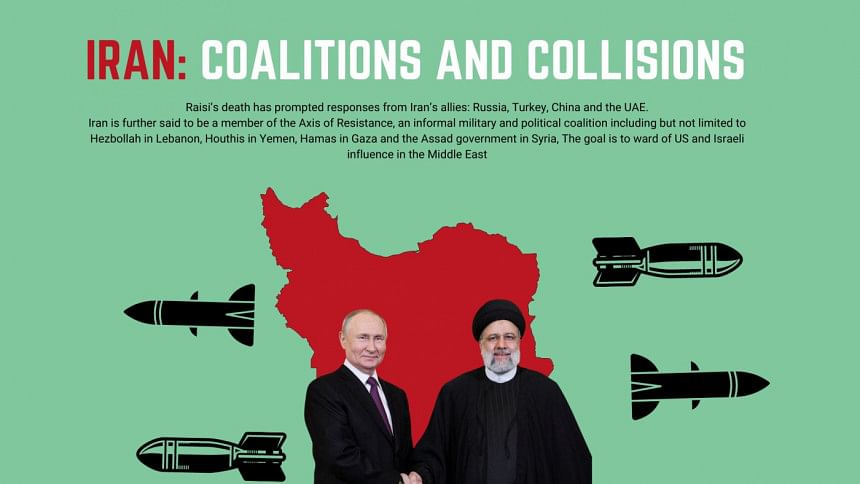
The informal coalition led by Iran called the Axis of Resistance situates the country as an even greater threat to US interests. The backing of Houthis, Hezbollah and Hamas, the latter of which has claimed it is in "full solidarity" with Iran, makes the death of Raisi seem like it is in the strategic interest of Western powers.
However, it is difficult and far-fetched as of now to make any clear statement from the speculations. For one, the helicopter carrying the late president was the Bell 212 helicopter. With international sanctions on Iran, acquiring necessary parts for its maintenance has been a challenge. Moreover, a major part of Iran's air fleet comes from even before the Islamic Revolution in 1979, i.e. from over 45 years ago. According to aviation expert Paul Beaver, heavy fog, clouds and cold temperatures are very likely to have caused the crash of the aircraft.
It is believed by some that Raisi's death may not lead to lasting changes in its relations with other entities and nations. Supreme Leader Ayatollah Ali Khamenei is the primary decision-maker, with those loyal to him being amply rewarded with power and positions. Raisi's interim successor, Mohammad Mokhber, is also believed to be a Khamenei loyalist.
The main challenge, however, arises from the fact that Raisi was seen as a potential successor to the current supreme leader. According to the Constitution of the Islamic Republic of Iran, which was amended in 1989, articles 60, 113, and 114-142 situate the president as the person with the most power after the supreme leader. It is imperative to remember, though, that under Iran's current system, it is still the supreme leader who holds the most sway in every aspect of governance. This power has been compared to that of the Muslim Caliphs in the Middle Ages.
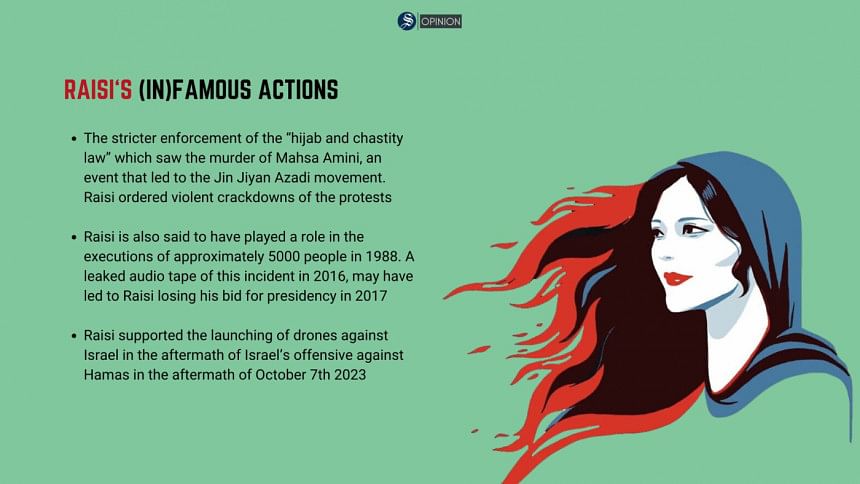
While previous presidents of Iran all had disagreements with the supreme leader, Raisi was seen as having what has been called an "unequivocal allegiance to the supreme leader" by Shahram Kholdi, a professor of Middle East politics at the University of Waterloo in Canada. With Raisi's demise, as per Article 131 of the constitution, the first vice-president will become the president and a new presidential election must be held within the coming 50 days.
Raisi's death undoubtedly changes who will succeed Ayatollah Ali Khamenei, who is 85 years old and known to be ill, though the Western press is accused of having exaggerated the extent of Khamenei's illness. It complicates the inner politics of Iran itself; it is believed that the son of Ali Khamenei, Mojtaba Khamenei, is closer to being a potential successor to his father after Raisi's death. It is unclear how Iran's political dynamic will play out in the coming days, in a regime where the Iranian people are largely frustrated with the economy and social and political repression. Given the turbulent state of the Middle East at the moment, the repercussions of Raisi's death could have effects in not only Iran but also the wider region.
Aliza Rahman is a member of the editorial team at The Daily Star.
Views expressed in this article are the author's own.
We welcome your contributions and analysis of global events, and responses to our articles. To submit articles to Geopolitical Insights, please send an email to [email protected].
Follow The Daily Star Opinion on Facebook for the latest opinions, commentaries and analyses by experts and professionals. To contribute your article or letter to The Daily Star Opinion, see our guidelines for submission.

 For all latest news, follow The Daily Star's Google News channel.
For all latest news, follow The Daily Star's Google News channel. 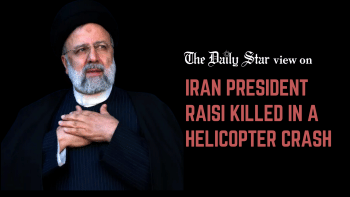
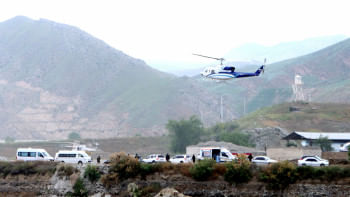
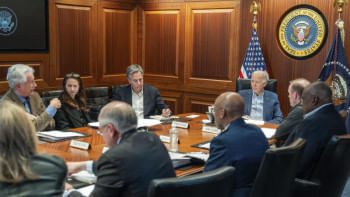



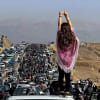





Comments